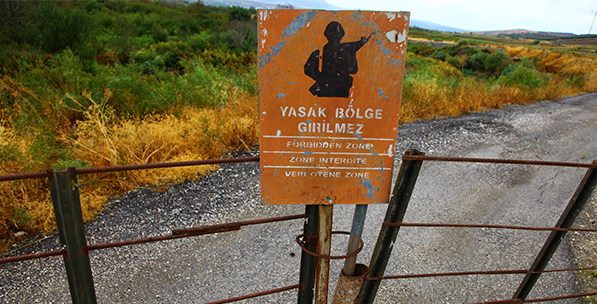One of the most important points on the agenda of Turkey's politics today is the shape of the new Cabinet to be formed. The administration's priorities will no doubt formulate its composition. The Nov. 1 elections brought a serious normalization to politics and the debates over the new Cabinet continue within the bounds of normalcy.
However, Turkish politics has not yet extricated itself from the siege of the abnormal. Attacks by the PKK terrorist organization and the struggle of the state against it continue to be one of the mainstays of the political agenda.
In the aftermath of the June 7 elections, the PKK assumed there to be an administrative vacuum and thus restarted its terror attacks. During this process, President Recep Tayyip Erdoğan said the "reconciliation process has been shelved" and that the struggle against the PKK would continue until it disarmed.
With three weeks left until the Nov. 1 elections, the PKK declared a cease-fire with the intent to support the Peoples' Democratic Party (HDP), but this situation was not able to keep the HDP from losing votes.
The PKK carrying its armed conflict to cities in the aftermath of June 7 and its forcing the Kurdish population in the east and southeast to rise against the state caused a decrease in the HDP's votes. The HDP lost more than 1 million votes and was barely able to pass the 10 percent national election threshold. The PKK's city battle strategy, which has caused life in the eastern and southeastern regions to come to a near standstill by also cutting off the cities' contact with their environment by digging trenches around them, has created a big reaction in society against the HDP.
The state has continued its operations against the PKK after Nov. 1 as it had been before the elections. Both President Erdoğan and Prime Minister Ahmet Davutoğlu have asserted that the operations will continue until the PKK disarms.
It is necessary to emphasize that the administration has developed a two-tier strategy against the PKK. The first is to neutralize the PKK's settlement in cities and the second is to get all the organization's militants to leave the country.
It appears that the matter of struggle against the PKK will continue to be the primary issue on the political agenda. At this point, what the HDP's attitude will be is of the utmost importance. In the time between the June 7 and Nov. 1 elections, the HDP did not act like a legitimate party participating in politics, but rather as a marginal underground organization that voices the priorities of the PKK and acts in accordance with the PKK's strategic preferences.
In this context, it is possible to criticize the HDP on two points. The first is that the HDP has not been able to separate itself from the PKK and has never been able to get rid of the PKK tutelage over itself. What is more, it has not even tried to do so. Secondly, the HDP did not play the role that was expected of it and did not put forward a political discourse and action that could stop the PKK's violence.
While the HDP paid the price for this attitude on Nov. 1, it continues to insist on this wrong attitude. The HDP is in a bitter attempt to obstruct the operations aimed at overthrowing the PKK's city settlements and destroying their weapons storage facilities. The only reason for this is not just the "organizational connection" between the PKK and HDP or the HDP's feeling that it is bound to the PKK. Another important reason for why the HDP is acting in tandem with the armed Kurdish nationalists is due to the HDP coming under the influence of pan-Kurdist political ideology. The HDP has chosen this over the agenda of becoming part of Turkey. However, prior to the Aug. 10, 2014 presidential election and the June 7 parliamentary elections, the HDP had announced that it was a party of Turkey and that it would conduct politics by overcoming radical Kurdish nationalism. But in the period between June 7 and Nov. 1 it left this discourse aside and chose to move with pan-Kurdist reflexes. The HDP's choice of centering its policies on Syria and not Turkey, and irrationally evaluating Turkey through the Rojava revolution myth shrunk its area of politics.
Can the HDP save itself from this pan-Kurdist deviation? Unfortunately, the HDP's performance after Nov. 1 makes it hard for us to be hopeful. In his announcement about the large-scale operation the state is conducting against the PKK in Silvan, HDP Co-Chair Selahattin Demirtaş once again opted to act as the mouthpiece of the PKK. Demirtaş qualified the PKK's actions as "a tremendous societal resistance in the battle against the state with all of its power and capacities," and made calls that "this societal resistance should be supported by all."Despite all of this, Turkish politics began to return to its regular boundaries after the Nov. 1 elections. It is now concerning itself with projects and programs for the future, and not just with problems and risks. It is additionally important that these are being spoken during a period when Turkey is hosting the G20 summit.
[Daily Sabah, November 13, 2015]








